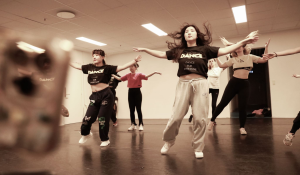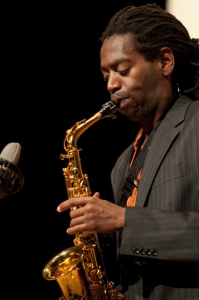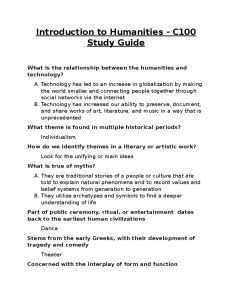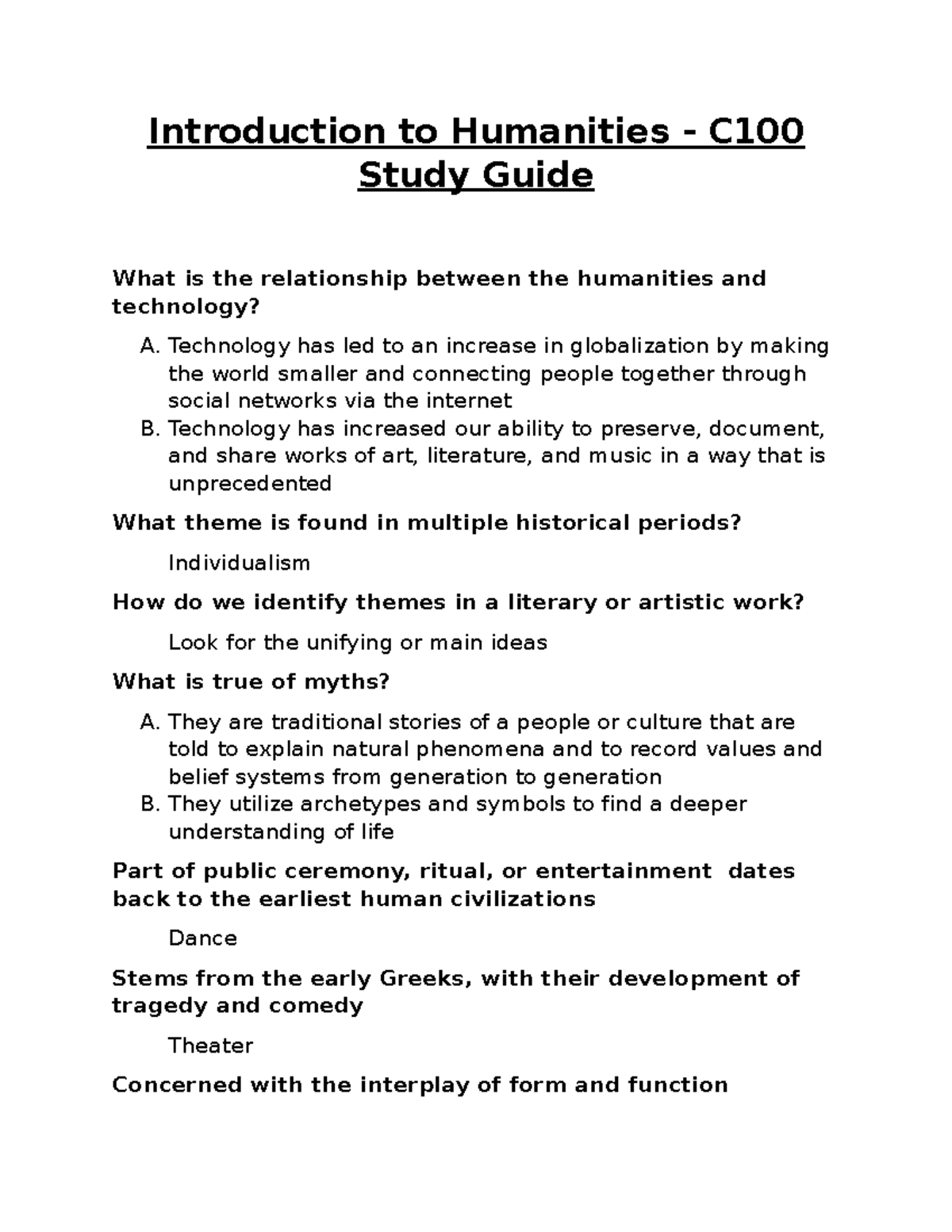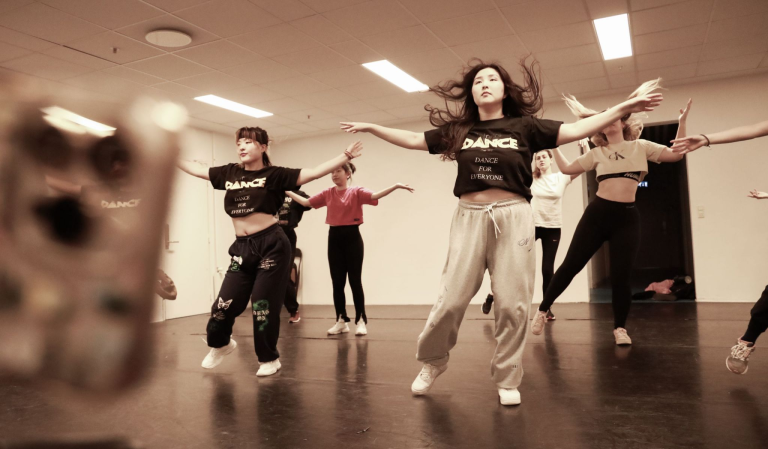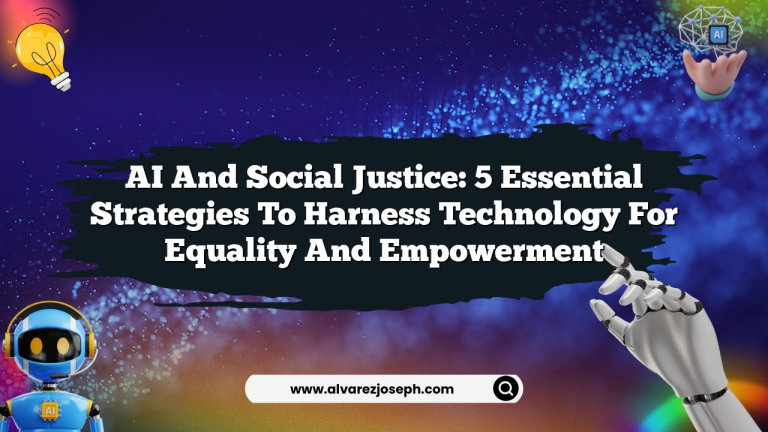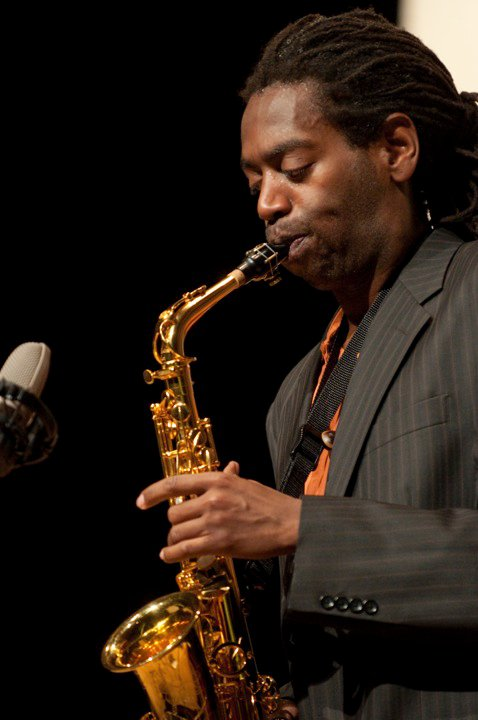Introductory humanities courses play a pivotal role in engaging first-year students with the vibrant world of arts and humanities. Designed to spark interest and invigorate the humanities curriculum, these courses serve as gateways into the multifaceted studies of culture, philosophy, and literature. Beginning this fall, nine new engaging humanities courses will be introduced, each carefully crafted to resonate with the evolving interests of today’s students. The initiative, led by Dean Sean Kelly, aims to reverse the trend of declining enrollment in these vital disciplines by providing a transformative learning experience. By exploring critical themes and innovative content, these courses promise to inspire a new generation of scholars and artists, enriching their academic journey and personal growth.
Beginning your academic adventure with foundational arts and culture classes can profoundly influence your understanding of the human experience. These introductory arts courses are designed not only to impart knowledge but also to cultivate a passion for the dynamic fields of humanities. They encompass a broad array of themes and methods, ensuring students encounter a holistic education that encourages critical thinking and creative expression. As institutions respond to declining interest, innovative programs are emerging to attract students by emphasizing transformative learning in humanities and satisfying their curiosity for diverse storytelling and interdisciplinary exploration. By engaging early with these subjects, students can explore fundamental questions about identity, society, and culture that will enrich their educational journey.
Engaging Humanities Courses for First-Year Students
Introductory humanities courses are an essential element of a comprehensive education, especially for first-year students who are navigating their academic paths. Harvard’s initiative to roll out nine new courses aims to enhance the experience for these students by integrating engaging and relevant content that resonates with their contemporary concerns. This approach not only addresses the declining enrollment in the humanities but also seeks to cultivate a climate of curiosity and inquiry among first-years. By emphasizing engaging humanities courses, institutions can better capture student interest and rekindle a love for the arts and humanities, which are crucial for developing critical thinking and cultural awareness.
The newly introduced courses, including topics such as ‘Migration and Border Crossing in Film and Photography’ and ‘Humanity, Technology, and Creation,’ are strategically designed to address the interests of today’s students. These subjects intertwine personal experiences with broader societal themes, exemplifying the relevance of humanities studies in understanding the world. As students engage with these dynamic topics, they’re encouraged to think critically and ethically about pressing issues, making their introductory courses both relatable and transformative. This shift towards crafting captivating course content affirms the university’s commitment to fostering a vibrant humanities curriculum that captures the imagination of every first-year student.
The Importance of a Strong Humanities Curriculum
A robust humanities curriculum is foundational to developing well-rounded individuals who are equipped to navigate an increasingly complex world. The proposed humanities courses at Harvard embody the essence of transformative learning, where students delve into the social, cultural, and philosophical questions that define human existence. By engaging with texts, art, and historical contexts, students gain a deeper understanding of the human experience, helping them to appreciate diverse perspectives. This engagement with the humanities cultivates essential skills such as critical analysis, empathetic understanding, and effective communication, necessary for success in any field.
Moreover, the humanities curriculum encourages students to connect with their own identities and values while sharpening their intellectual acuity. As they explore various disciplines — from literature and philosophy to art history — students are not only gaining knowledge but also fostering a sense of social responsibility. The incorporation of significant contemporary themes, like globalization and technology’s impact on society, makes the curriculum relevant and engaging for today’s learners. By ensuring that the humanities curriculum remains dynamic and reflective of current global issues, educational institutions can inspire the next generation to explore the complexities of human life critically.
Transformative Learning through Introductory Courses
Transformative learning is at the heart of the introductory courses being introduced in the Division of Arts and Humanities. As Dean Sean Kelly emphasizes, the goal is to initiate deep, reflective thinking that goes beyond surface-level engagement with texts and concepts. By challenging students to confront existential questions and ethical dilemmas, these courses encourage them to broaden their understanding of themselves in relation to the world. This framework not only enhances their academic experience but also fosters personal growth and awareness, allowing students to forge meaningful connections with the materials they study.
The initiative aims to alter perceptions of what the humanities can offer—that they are not merely about historical texts or theoretical constructs but are vital for understanding contemporary issues. Each course is designed to provoke curiosity and stimulate dialogue among students, fostering an environment where they can explore their ideas freely. This innovative approach to teaching humanities ensures that students leave their introductory courses not just equipped with knowledge but transformed by the learning experience, ready to apply their insights to both personal and professional contexts.
Reimagining Arts and Humanities Education
The reimagining of arts and humanities education is essential in a time when student interest in these fields is waning. The new introductory courses launched by Harvard aim to shift this trend by providing compelling reasons for students to remain engaged with the arts and humanities throughout their academic journey. In an era dominated by technology and rapid information exchange, these courses serve to highlight the essential humanistic skills that are invaluable in any career. The ability to analyze texts, interpret artistic expressions, and understand cultural influences prepares students for a world that increasingly values creativity and critical thinking.
By redefining what introductory courses can be, educational institutions can rekindle students’ passion for the arts and humanities. Featuring diverse and contemporary topics allows students to connect coursework with their personal experiences and societal movements, creating a more resonant and impactful learning environment. This educational shift not only enhances student engagement but promotes a deeper appreciation for the significance of humanities studies in cultivating informed and compassionate citizens.
The Role of Faculty in Shaping Humanities Initiatives
The dedicated faculty members play a crucial role in shaping the new humanities initiatives by bringing innovative ideas and fresh perspectives to the classroom. Their commitment to engaging students with thought-provoking content ensures that introductory courses are not static but evolve to meet the needs of each new class. Faculty initiatives focus on embracing diverse viewpoints and integrating a multitude of texts, which reflects the multifaceted nature of the human experience. Such practices are vital in encouraging students to critically engage with the materials, fostering an environment where inquiry and discussion thrive.
Furthermore, faculty members are tasked with not only teaching but also mentoring students through transformative learning experiences. By offering guidance on navigating complex subjects and encouraging interdisciplinary exploration, faculty help students uncover personal connections to their studies. This mentorship is pivotal in retaining student interest in the humanities and equipping them with the skills necessary to apply their knowledge in various fields. The synergy between faculty and students creates a vibrant academic community that enriches the overall learning experience in the arts and humanities.
Exploring the Intersection of Technology and Humanities
As the digital landscape continues to evolve, the intersection of technology and humanities presents exciting opportunities for exploration. Courses like ‘Humanity, Technology, and Creation’ directly address how technological advances influence society, culture, and human connection. By engaging in discussions around these topics, students can critically analyze the benefits and challenges posed by technology in their lives and in the arts. This examination cultivates a deeper awareness of how technology shapes narratives and authentic storytelling, vital skills in an era where digital communication dominates.
Integrating technology into humanities education also allows for innovative teaching methods, providing a more interactive and engaging learning environment. Students can explore multimedia resources, digital archives, or even engage in virtual discussions that enhance their understanding of complex themes. This incorporation of technology not only modernizes the humanities curriculum but also prepares students to navigate their future careers in a tech-oriented job market. By understanding the interplay between technology and the arts, students are better equipped to contribute to conversations about ethical implications and the future of cultural production.
The Importance of Early Exposure to Humanities
Early exposure to humanities courses is paramount in shaping students’ attitudes towards this field of study. Research indicates that the earlier students are introduced to the arts and humanities, the more likely they are to appreciate and pursue these subjects throughout their academic careers. Initiatives like Harvard’s aim to provide first-year students with accessible and engaging courses that spark curiosity and enthusiasm. The impact of such exposure goes beyond academic performance; it significantly enriches students’ social and emotional development, fostering empathy and cultural awareness.
Moreover, early engagement with humanities disciplines encourages critical thinking and creativity from the outset of students’ college journeys. By exploring foundational concepts in literature, philosophy, and the arts, students establish a solid framework for understanding and discussing complex issues. This formative experience helps cultivate lifelong learners who view the humanities as integral to their personal and professional identities. By prioritizing early exposure to humanities courses, educational institutions can nurture future generations who appreciate the value of the arts and humanities in shaping a well-rounded worldview.
Challenges in the Humanities Landscape
Despite the significance of the arts and humanities, there are notable challenges faced within this educational landscape. One significant issue is the perception that these disciplines hold less practical value compared to more STEM-focused fields. This misconception contributes to declining student enrollment in humanities courses, as potential students may choose to pursue perceived ‘safer’ career paths. It is crucial to address these challenges head-on by emphasizing that skills developed through studying the humanities—critical thinking, analysis, and ethical reasoning—are invaluable in any career.
Additionally, the historical debates known as the ‘Canon Wars’ have complicated students’ relationships with the humanities, often making it difficult to define what constitutes essential reading or fundamental knowledge in these fields. Educators must promote a more inclusive curriculum that reflects diverse voices and perspectives, thereby renewing student interest in humanities studies. By acknowledging and addressing these challenges, institutions can create an educational environment that not only draws students into the humanities but also enriches the discourse around what it means to study human culture.
The Future of Arts and Humanities Education
Looking ahead, the future of arts and humanities education appears promising as institutions recognize the need for innovative and engaging curricula. With initiatives like those spearheaded by Dean Sean Kelly at Harvard, the focus is squarely on revitalizing how students perceive and interact with the humanities. By introducing courses that are relevant to contemporary issues and that resonate with student experiences, institutions can harness the transformative potential of these subjects to attract a diverse range of learners.
This commitment to reimagining humanities education also paves the way for interdisciplinary collaborations that span various fields. As educators acknowledge the interconnectedness of knowledge, students can explore more comprehensive approaches to their studies, enhancing their critical thinking abilities and allowing them to draw connections across disciplines. As arts and humanities education enters a new era, fostering such dynamic and inclusive environments will be essential in preparing students to address the complex global challenges of tomorrow.
Frequently Asked Questions
What are introductory humanities courses and why are they important?
Introductory humanities courses are foundational classes within the humanities curriculum that introduce students to essential concepts, texts, and questions concerning human culture, philosophy, literature, art, and history. These courses are important because they not only engage students in critical thinking but also help them develop a deeper understanding of the human experience, which can be transformative for their academic journeys and personal growth.
How do engaging humanities courses differ from traditional introductory courses?
Engaging humanities courses are designed to capture students’ interest and provide an interactive learning experience, often incorporating various multimedia elements, discussions, and practical applications. Unlike traditional introductory courses that may focus primarily on rote learning or canonical texts, these new offerings aim to connect the humanities with contemporary issues, making the material more relevant and stimulating for first-year students.
What are some examples of new introductory humanities courses being offered?
This academic year, several innovative introductory humanities courses are being introduced, such as ‘Introduction to the Medical and Health Humanities,’ ‘Migration and Border Crossing in Film and Photography,’ and ‘Humanity, Technology, and Creation.’ These courses not only address significant themes in the humanities but also encourage students to explore interconnectedness between various disciplines and societal issues.
How can introductory humanities courses change students’ perceptions of the arts and humanities?
Introductory humanities courses can significantly change students’ perceptions by demonstrating the relevance of arts and humanities in understanding complex societal issues. Through transformative learning experiences, these courses aim to enrich students’ appreciation of human culture and encourage them to see the intrinsic value of humanities studies, beyond mere vocational paths.
What impact do introductory humanities courses have on first-year students?
Introducing first-year students to well-structured humanities courses can positively impact their academic trajectories by fostering critical thinking, improving analytical skills, and enhancing their appreciation for diverse perspectives. This initiative aims to reduce the trend of students switching away from humanities disciplines by making the courses resonate with their interests and academic aspirations.
Why is there a decline in enrollment in arts and humanities courses?
The decline in enrollment in arts and humanities courses is partly attributed to a lack of emphasis on these subjects in high schools and the historical ‘Canon Wars’ debate, which has complicated the appeal of introductory courses. Many students enter college with limited engagement in the humanities, leading to reduced interest over time unless compelling courses are offered that connect to their experiences and interests.
What role do faculty play in reshaping introductory humanities courses?
Faculty play a crucial role in reshaping introductory humanities courses by integrating contemporary themes, diverse perspectives, and innovative teaching methods. Their expertise and creativity in designing engaging coursework can ignite students’ interest and help them appreciate the relevance and transformative potential of the humanities.
How can students benefit from taking introductory humanities courses?
Students can benefit from taking introductory humanities courses by gaining a comprehensive understanding of major ideas and texts that shape human thought. They develop critical reading and writing skills, learn to analyze complex concepts, and enhance their overall ability to articulate their thoughts, which are beneficial for any academic or career path.
| Key Points |
|---|
| Introduction of nine new introductory humanities courses aimed at increasing student engagement in arts and humanities. |
| The initiative, led by Dean Sean Kelly, aims to address declining enrollment in humanities fields. |
| Most students lose interest in humanities majors as they progress through their studies, moving from an initial interest in arts and humanities to different concentrations. |
| High demand persists for creative subjects like Art, Film, Visual Studies, and Theater, indicating areas of potential growth. |
| ‘Canon Wars’ of the 1980s and 1990s complicated the curriculum by challenging the definition of essential texts in humanities education. |
| New courses inspired by successful models from the Philosophy department, focusing on fundamental human questions rather than preparing students for Ph.D. tracks. |
| Highlighted courses include ‘Introduction to Medical and Health Humanities,’ ‘Bob Dylan the Classic,’ and ‘Migration and Border Crossing in Film and Photography.’ |
| Courses aim to provide foundational knowledge in humanities similar to introductory courses in other disciplines, focusing on critical skills like metaphor and consciousness. |
| The initiative’s goal is to enhance the appreciation of humanities for new students, emphasizing intrinsic value over purely practical applications. |
Summary
Introductory humanities courses are crucial for nurturing a deeper understanding of human culture in today’s educational landscape. The initiative at Harvard, led by Dean Sean Kelly, exemplifies a transformative approach to engaging first-year students in the arts and humanities. By redefining introductory courses, the program seeks to captivate students’ interest and reshape their perceptions of the humanities’ role in their education. Emphasizing intrinsic value and critical engagement with art, literature, and philosophy, these courses not only aim to reverse declining enrollment trends but also to foster a richer, more inclusive humanities culture that resonates with the personal experiences and aspirations of students.
